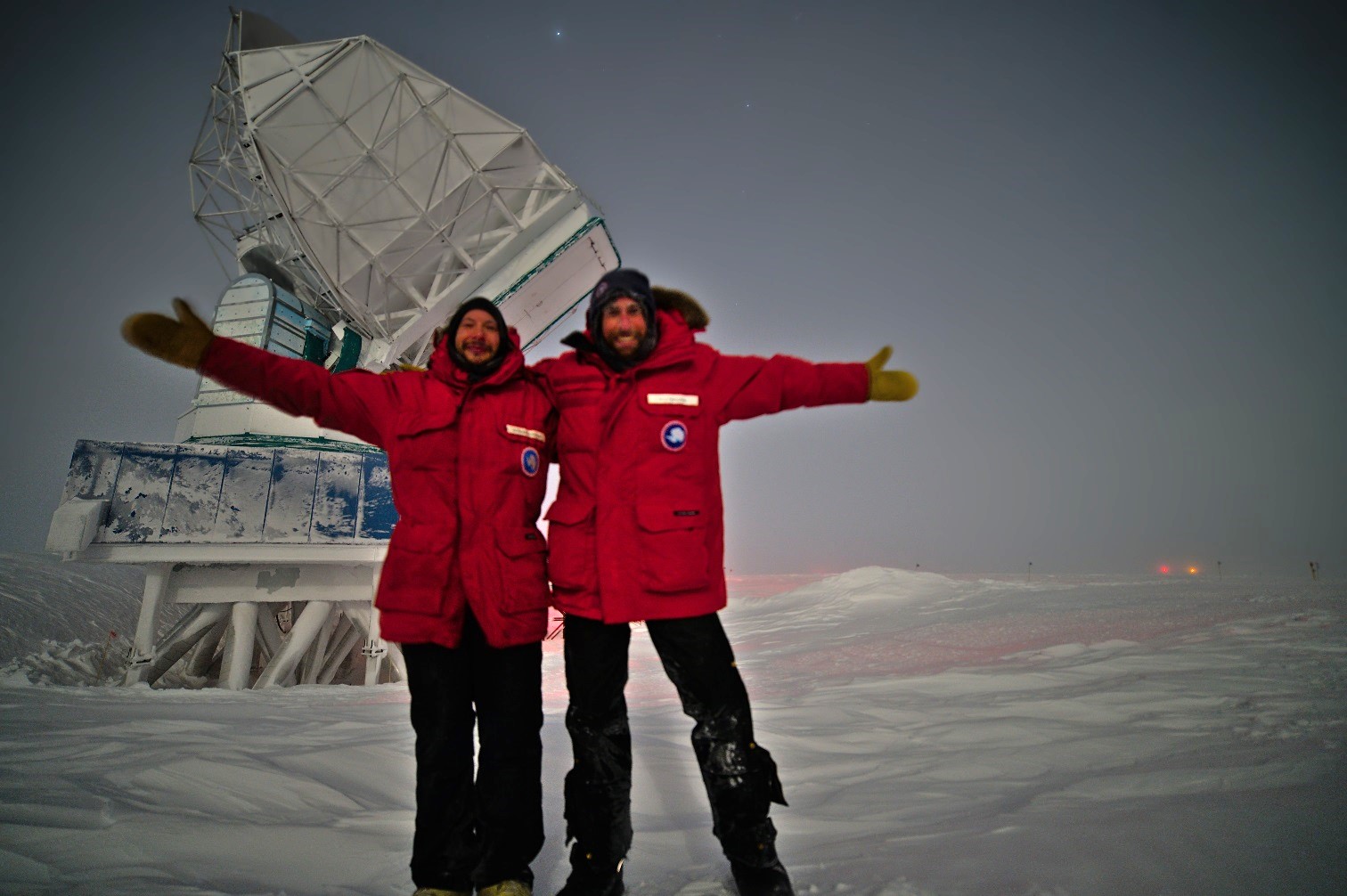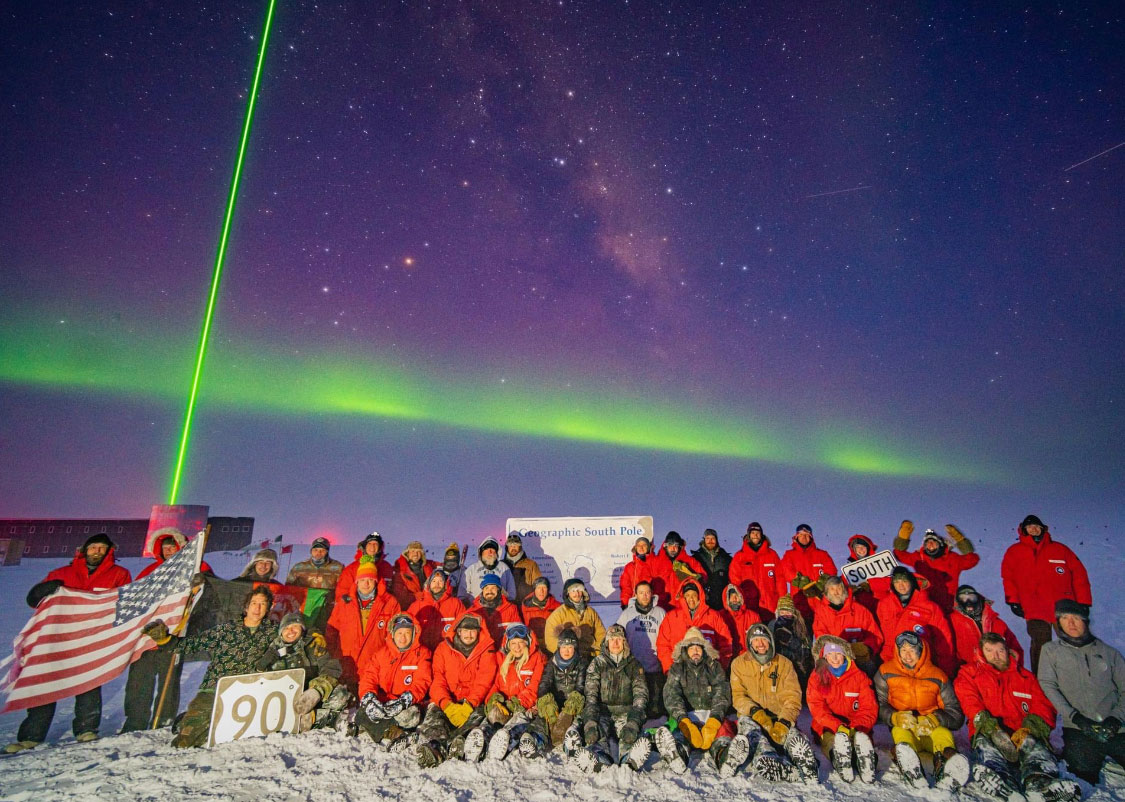South Pole Winter
Six months without seeing the sun? No problem.
I was one of 43 people to spend the 2023 winter at the Amundsen-Scott South Pole Station. From mid February to late October, there are no flights in or out of the station; those of us who stay for that period (the winterovers) are tasked with keeping the science happening. I specifically worked for the South Pole Telescope (SPT), ensuring that high-quality data could be taken all winter long.
Image: My winterover partner Alex and I posing in front of the telescope.

